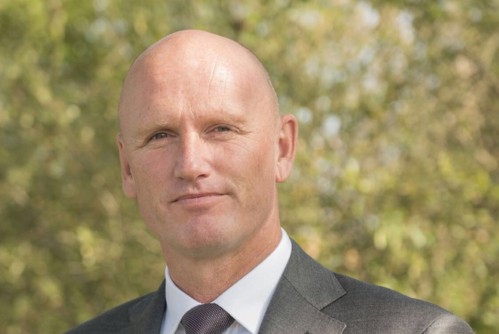
Picture credit: Adobe Stock
The air cargo industry had a challenging year in 2022 with demand dropping off at the end of the first quarter. Some players looked at the decline and decided not to take part; one of those companies was Kales Group, which managed to grow with new contracts and developing its existing relationships.
Part of the new business came from signing the Total Cargo Management contract with Norse Atlantic and a strategic partnership with Cainiao Group to fill idle capacity on lanes with directional imbalances.
Industry data shows that cargo demand remains weak as 2023 gets underway, which makes Kales’ performance even more outstanding, says Sebastiaan Scholte, because it is on a par with last year, only seeing a modest decline.
He says, “Our existing clients are doing very well. We represent a lot of airlines and one way to grow is growing with your current airlines. The second way to grow is to gain new customers.”
Nobody has a crystal ball, Scholte says, so making predictions about the future is challenging but had he been asked about the outlook for 2023 at the start of the year, he would have been much more pessimistic than he is now. People were talking about recessions in major economies though latest figures suggest things are not so bad.
There are still challenges such as low unemployment putting pressure on wages and energy prices remain high, though they are easing.
During the pandemic, people were unable to spend their money on services such as eating out so spent money buying goods, mostly online, which benefited air cargo.
This demand will always be cyclical, inventory is high and supply chain disruption has cleared so shippers are likely to look at sea freight before choosing airfreight.
Barring a major global issue, Scholte expects growth will return in the second half and the reopening of China will be helpful.
He says, “We have grown a lot with our current customers, we have a very solid customer base in all of the countries we are present in with all of the forwarder relationships. The advantage of our company is that we are very entrepreneurial and agile so we are very quick to react. With a little bit of economic tailwind and the strength of our entrepreneurial organisation, the outlook is not bad.”
As capacity returns and demand falls, yields are coming now from the Covid highs.
Robert Kleppers says, “Post-Covid, there will be some normalisation, especially as things are getting back to normal for sea freight but with added costs and the new normal, they are expected to remain above pre-Covid levels.”

Total management
Last year, Kales implemented Total Cargo Management, successfully setting up a complete department from scratch, which is something to be expanded.
It also has a strong back office capability and Scholte says the advantage of representing several airlines is being able to pick the best practices, which helps make business more lean and efficient.
The high yields and strong turnover during the pandemic could have justified insourcing but Scholte says this did not happen because airlines want to remain lean, and this benefits GSAs.
Scholte says, “A GSA is not just sales based on commission, it is a true partnership where GSAs are taking more positions, doing their own charters, arranging interlines on behalf of airlines. I think we should become the integrated GSA, meaning that we are completely entangled with the processes of the airlines.”
Kales uses RPA (robot, process, automation) solutions, bots that can make the booking process much more efficient. Eliminating waste in the system is the intention and the best way to do this is digitally connecting with the whole supply chain and being more automated.
Combined with market data, this makes decisions made with on-the-spot data possible and the future could include AI and enhanced learning to predict the future and make decisions on behalf of customers.
One advantage of the pandemic was speeding up digitalisation, with systems going paperless and touchless in many cases, which was overdue.
Scholte says, “If young people come to our industry, they are surprised by the lack of embracing technology and innovation. On the other hand, it is still a people business; cargo doesn’t move by itself and there are still a lot of things that can go wrong in the supply chain but I always say you have to optimise and digitise as much as possible then humanly manage the exceptions. It is still a trust business and relationships matter.”

This article was published in the April issue of Air Logistics International, click here to read the digital edition and click here to subscribe.
